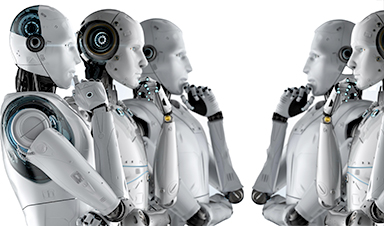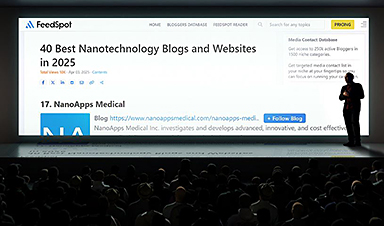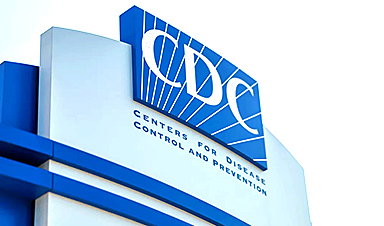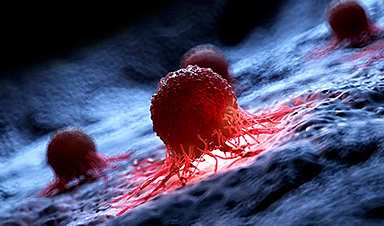Modern AI systems have fulfilled Turing’s vision of machines that learn and converse like humans, but challenges remain. A new paper highlights concerns about energy consumption and societal inequality while calling for more robust AI testing to ensure ethical and sustainable progress.
A perspective published on November 13 in Intelligent Computing, a Science Partner Journal, argues that modern artificial intelligence systems have fulfilled Alan Turing’s decades-old vision: machines capable of learning from experience and engaging in human-like conversations. Authored by Bernardo Gonçalves, a researcher affiliated with the University of São Paulo and the University of Cambridge, the paper examines the alignment between contemporary AI technologies and Turing’s ideas, while highlighting key differences.
The paper emphasizes how today’s transformer-based systems—despite their significant energy demands—contrast with Turing’s concept of machines developing intelligence naturally, akin to the learning process of human children. Gonçalves notes that transformers, which power current generative AI models, provide what Turing described as “adequate proof” of machine intelligence. Leveraging attention mechanisms and large-scale learning, these systems now excel in tasks traditionally associated with human cognition, such as generating coherent text, solving complex problems, and engaging in discussions about abstract concepts.
The Evolution of AI and Turing’s Influence
“Without resorting to preprogramming or special tricks, their intelligence grows as they learn from experience, and to ordinary people, they can appear human-like in conversation,” writes Gonçalves. “This means that they can pass the Turing test and that we are now living in one of many possible Turing futures where machines can pass for what they are not.”

This achievement traces back to Turing’s 1950 concept of the “imitation game,” in which a machine would attempt to mimic a human in a remote conversation, deceiving a non-expert judge. The test became a cornerstone of artificial intelligence research, with early AI pioneers John McCarthy and Claude Shannon considering it the “Turing definition of thinking” and Turing’s “strong criterion.” Popular culture, too, undeniably reflects Turing’s influence: the HAL-9000 computer in the Stanley Kubrick film 2001: A Space Odyssey famously passed the Turing test with ease.
However, the paper underscores that Turing’s ultimate goal was not simply to create machines that could trick humans into thinking they were intelligent. Instead, he envisioned “child machines” modeled on the natural development of the human brain—systems that would grow and learn over time, ultimately becoming powerful enough to have a meaningful impact on society and the natural world.
Challenges in Modern AI Development
The paper highlights concerns about current AI development. While Turing advocated for energy-efficient systems inspired by the natural development of the human brain, today’s AI systems consume massive amounts of computing power, raising sustainability concerns. Additionally, the paper draws attention to Turing’s ahead-of-his-time societal warnings. He cautioned that automation should affect all levels of society equally, not just displace lower-wage workers while benefiting only a small group of technology owners—an issue that resonates strongly with current debates about AI’s impact on employment and social inequality.
Looking ahead, the paper calls for Turing-like AI testing that would introduce machine adversaries and statistical protocols to address emerging challenges such as data contamination and poisoning. These more rigorous evaluation methods will ensure AI systems are tested in ways that reflect real-world complexities, aligning with Turing’s vision of sustainable and ethically guided machine intelligence.
Reference: “Passed the Turing Test: Living in Turing Futures” by Bernardo Gonçalves, 13 November 2024, Intelligent Computing.
DOI: 10.34133/icomputing.0102
News
A Grain of Brain, 523 Million Synapses, Most Complicated Neuroscience Experiment Ever Attempted
A team of over 150 scientists has achieved what once seemed impossible: a complete wiring and activity map of a tiny section of a mammalian brain. This feat, part of the MICrONS Project, rivals [...]
The Secret “Radar” Bacteria Use To Outsmart Their Enemies
A chemical radar allows bacteria to sense and eliminate predators. Investigating how microorganisms communicate deepens our understanding of the complex ecological interactions that shape our environment is an area of key focus for the [...]
Psychologists explore ethical issues associated with human-AI relationships
It's becoming increasingly commonplace for people to develop intimate, long-term relationships with artificial intelligence (AI) technologies. At their extreme, people have "married" their AI companions in non-legally binding ceremonies, and at least two people [...]
When You Lose Weight, Where Does It Actually Go?
Most health professionals lack a clear understanding of how body fat is lost, often subscribing to misconceptions like fat converting to energy or muscle. The truth is, fat is actually broken down into carbon [...]
How Everyday Plastics Quietly Turn Into DNA-Damaging Nanoparticles
The same unique structure that makes plastic so versatile also makes it susceptible to breaking down into harmful micro- and nanoscale particles. The world is saturated with trillions of microscopic and nanoscopic plastic particles, some smaller [...]
AI Outperforms Physicians in Real-World Urgent Care Decisions, Study Finds
The study, conducted at the virtual urgent care clinic Cedars-Sinai Connect in LA, compared recommendations given in about 500 visits of adult patients with relatively common symptoms – respiratory, urinary, eye, vaginal and dental. [...]
Challenging the Big Bang: A Multi-Singularity Origin for the Universe
In a study published in the journal Classical and Quantum Gravity, Dr. Richard Lieu, a physics professor at The University of Alabama in Huntsville (UAH), which is a part of The University of Alabama System, suggests that [...]
New drug restores vision by regenerating retinal nerves
Vision is one of the most crucial human senses, yet over 300 million people worldwide are at risk of vision loss due to various retinal diseases. While recent advancements in retinal disease treatments have [...]
Shingles vaccine cuts dementia risk by 20%, new study shows
A shingles shot may do more than prevent rash — it could help shield the aging brain from dementia, according to a landmark study using real-world data from the UK. A routine vaccine could [...]
AI Predicts Sudden Cardiac Arrest Days Before It Strikes
AI can now predict deadly heart arrhythmias up to two weeks in advance, potentially transforming cardiac care. Artificial intelligence could play a key role in preventing many cases of sudden cardiac death, according to [...]
NanoApps Medical is a Top 20 Feedspot Nanotech Blog
There is an ocean of Nanotechnology news published every day. Feedspot saves us a lot of time and we recommend it. We have been using it since 2018. Feedspot is a freemium online RSS [...]
This Startup Says It Can Clean Your Blood of Microplastics
This is a non-exhaustive list of places microplastics have been found: Mount Everest, the Mariana Trench, Antarctic snow, clouds, plankton, turtles, whales, cattle, birds, tap water, beer, salt, human placentas, semen, breast milk, feces, testicles, [...]
New Blood Test Detects Alzheimer’s and Tracks Its Progression With 92% Accuracy
The new test could help identify which patients are most likely to benefit from new Alzheimer’s drugs. A newly developed blood test for Alzheimer’s disease not only helps confirm the presence of the condition but also [...]
The CDC buried a measles forecast that stressed the need for vaccinations
This story was originally published on ProPublica, a nonprofit newsroom that investigates abuses of power. Sign up to receive our biggest stories as soon as they’re published. ProPublica — Leaders at the Centers for Disease Control and Prevention [...]
Light-Driven Plasmonic Microrobots for Nanoparticle Manipulation
A recent study published in Nature Communications presents a new microrobotic platform designed to improve the precision and versatility of nanoparticle manipulation using light. Led by Jin Qin and colleagues, the research addresses limitations in traditional [...]
Cancer’s “Master Switch” Blocked for Good in Landmark Study
Researchers discovered peptides that permanently block a key cancer protein once thought untreatable, using a new screening method to test their effectiveness inside cells. For the first time, scientists have identified promising drug candidates [...]





















